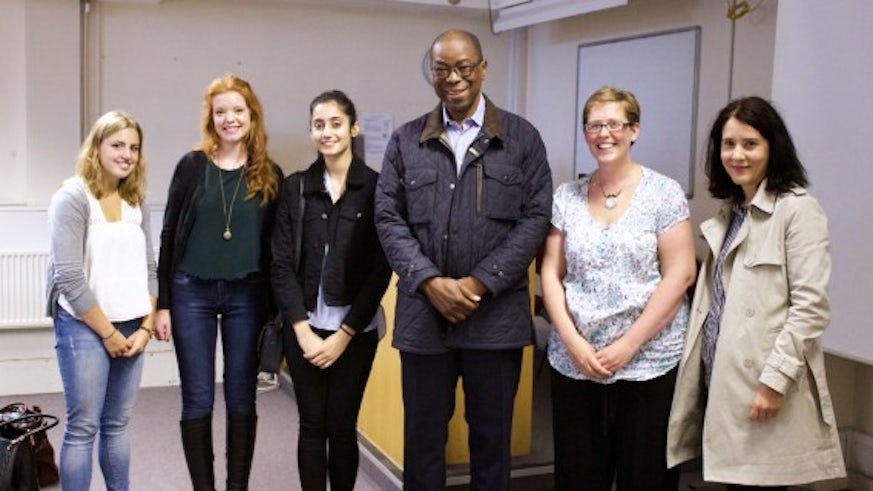Students captivated by Mozambican literary visitor
23 September 2015

This September, the School of Modern Languages welcomed the esteemed Mozambican author and politician, Luis Bernardo Honwana to Cardiff.
Honwana, who served as Secretary of State for Culture in Mozambique, is well known for the influential 1964 book, “Nós Matámos o Cão-Tinhoso” (We Killed Mangy Dog), a collection of short stories set in the (Portuguese) colonial era. A highly regarded author, journalist, and politician, Honwana was a key voice in the fight for independence in Mozambique.
As the School has recently added Portuguese to its list of language degree options, Lecturer in Portuguese, Rhian Atkin arranged for Mr Honwana to speak to language students, colleagues and members of the public about the culture and politics of Mozambique, where Portuguese is an official language..
In his wide-ranging talk, Honwana discussed language use and education and the need for Portuguese to work alongside indigenous languages in Mozambique. He explained that the government must go through a learning process to ensure that the multiplicity of cultures and languages co-existing in Mozambique are represented within the nationality that Mozambicans ‘acquired’ after independence in 1975.
Honwana’s talk was followed by a series of questions from audience members during which the speaker talked about the film industry in Mozambique, colonialism and postcolonial language politics, the entry of Mozambique to the Commonwealth, and the use of specific ideological frameworks in the campaign for liberation and the governance of Mozambique after 1975.
After the talk, Rhian Atkin said, “It was a real privilege to welcome Luís Bernardo Honwana, a highly regarded public figure, to Modern Languages at Cardiff. Students will be studying Mr Honwana’s work this year, and his talk will help to bring alive the text and inspire interest in the culture and politics of Mozambique. The visit was a fabulous experience for students and staff alike, and a super way to commence this launch year for Portuguese at Cardiff.”